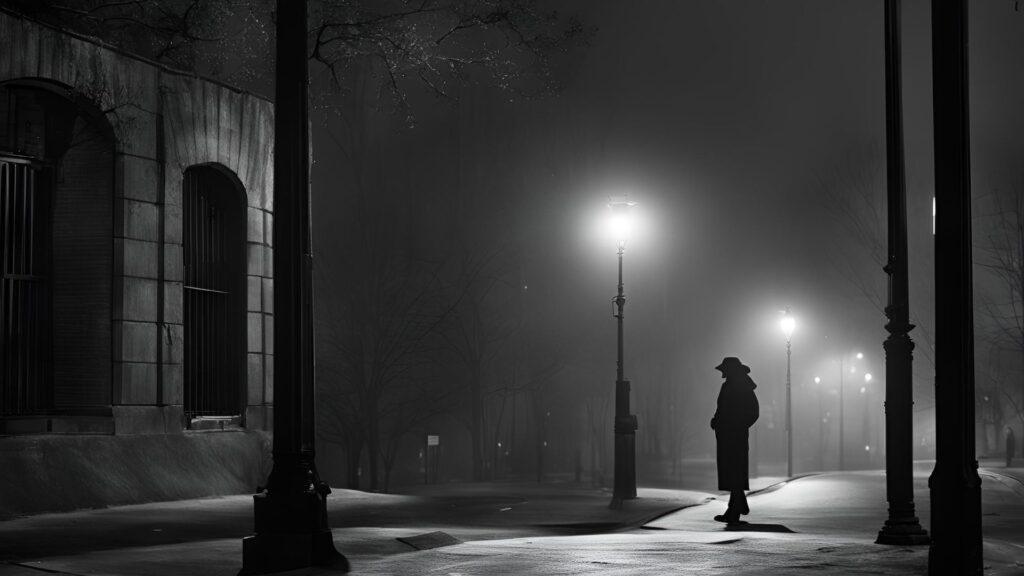Short Stories for Middle School are everywhere, in books, movies, and even the things we tell our friends. They help us see the world in new ways. Writing stories is a fun way to share ideas.
This guide will help middle school students write simple and interesting Short Stories for Middle School. Whether you love writing or are just starting, these tips will help.
A short story is just a small story. It has a beginning, middle, and end. It’s usually about one main event or character. Writing helps you think, read, and express yourself. It also builds confidence. Most of all, it’s fun!
What Is a Short Story?
A short story is a quick and focused story, usually between 500 and 2,000 words. It has a clear beginning, middle, and end. It follows one main idea or problem, with only a few characters and settings. Every word is important.
Why They’re Great for Middle School Writers
Short stories are fun and easy to write. They aren’t too long, so writers can focus on creating great characters and exciting plots. They also help students try new genres and styles while improving their writing skills.
Short Stories for Middle School
Jump into the world of storytelling with fun and exciting short stories for middle school students!
The Lost Key

Liam wasn’t expecting to find anything special that afternoon. He was just pulling weeds in his backyard, trying to finish the chore before his mom reminded him again. The sun was warm on his back, and the scent of fresh grass filled the air. He jabbed his small garden shovel into the dirt near the old oak tree, but instead of soft soil, he hit something solid.
Frowning, he dug around it. After a few minutes, he pulled out a rusted metal key, its surface rough and worn. It was bigger than most keys he had seen, with a fancy, curled design at the top. He turned it over in his hand, wiping away dirt with his thumb.
“Where did you come from?” he muttered to himself.
He glanced toward the house, but his mom was still inside. The discovery sent a thrill through him—like he had just stumbled onto a piece of history. He didn’t know what the key opened, but he was going to find out.
The next day, Liam met up with his best friend, Ava, at the park. They sat on the swings, the key resting on Ava’s open palm.
“This looks old,” she said, inspecting it. “Like, really old.”
“I know,” Liam said. “I found it buried in my yard. What do you think it unlocks?”
Ava grinned. “Hopefully something cool. Maybe a hidden chest full of treasure?”
Liam chuckled. “Or just some old rusty shed.”
“Either way, we have to find out,” Ava said. “Did you ask your parents?”
“My mom just said our house has been here a long time. She figured it’s junk someone lost years ago.”
Ava tilted her head. “I don’t know… something about it feels important.”
Liam agreed. The key wasn’t just some regular house key. It felt… special.
“Let’s go to the library,” he said. “Maybe there’s something about my neighborhood in the town records.”
Ava nodded. “And if not, we start searching for locks.”
The town library smelled like old books and polished wood. Ms. Carver, the librarian, smiled when she saw them.
“Back again, detectives?” she said.
Liam and Ava had been here plenty of times before, always looking up random mysteries—urban legends, ghost stories, even weird newspaper clippings from decades ago.
Liam placed the key on the counter. “We’re trying to figure out where this came from.”
Ms. Carver picked it up, her brow furrowing. “This looks like an antique.”
“Do you think it belongs to a building around here?” Ava asked.
Ms. Carver thought for a moment. “Your neighborhood is old. Some of the houses were built over a hundred years ago. There used to be a big estate there—Dalton House. But it burned down ages ago.”
Liam and Ava exchanged a glance. “Dalton House?” Liam repeated.
Ms. Carver nodded. “The family that owned it was well known back in the day. The only thing left is a run-down storage shed on the property. Some people say there might still be family belongings inside.”
Liam’s heart started pounding. A forgotten shed? That could be it.
“Where is it?” Ava asked.
“Just past the woods behind your street,” Ms. Carver said. “But be careful. That place hasn’t been touched in years.”
Liam and Ava made their way through the trees behind his neighborhood, stepping over fallen branches and pushing through thick weeds. After a few minutes, they spotted a small, weathered shed, its wooden walls gray with age. The door was shut, a rusted lock still in place.
Liam pulled out the key. His hands were slightly sweaty, and he wiped them on his jeans before pushing the key into the lock.
Click.
Ava sucked in a breath. “No way,” she whispered.
Liam turned the key, and the lock popped open. He took it off, hesitated for a second, then pulled the door open.
Inside, dust floated in the sunlight streaming through cracks in the wood. Old crates and wooden shelves lined the walls, filled with faded books, glass bottles, and papers yellowed with age.
Ava stepped inside first. “This stuff must’ve been here forever.”
Liam scanned the room, his eyes landing on a wooden box sitting in the corner. It looked more well-kept than everything else, as if someone had tucked it away carefully.
He knelt beside it and lifted the lid. Inside, a bundle of letters tied with ribbon sat neatly on top of a stack of photographs. He picked one up, his fingers brushing against the faded ink.
Ava leaned over his shoulder. “Whoa… these are from the 1920s.”
Liam unfolded one of the letters. The handwriting was elegant but slightly smudged with age. He read aloud:
“My dearest Thomas, I keep this key as a promise. If you ever return, you will know where to find what we shared…”
Liam stopped, glancing at Ava.
“Sounds like some kind of secret romance,” she said.
They flipped through more letters. They told the story of Eliza Dalton, a woman who had fallen in love with a man her family disapproved of. He was forced to leave, but she had held onto hope that one day he would come back. The key was supposed to be a way for him to find her again.
“But he never did,” Liam murmured.
Ava nodded, a bit more serious now. “Maybe something stopped him.”
Liam exhaled slowly, looking around the shed. “And then the fire happened. The house was destroyed, the family left, and this was all that was left behind.”
The story made Liam’s chest feel tight. The letters were filled with so much hope, but Eliza had probably waited her whole life for someone who never returned.
“What do we do with this?” Ava asked, glancing at the letters.
Liam thought for a moment. “We should find out if she had any family left. Maybe someone deserves to know.”
It took a few days, but eventually, they tracked down a distant relative of the Daltons—an older woman named Margaret, who lived on the other side of town.
Margaret invited them inside, her eyes lighting up when she saw the letters. “My great-aunt Eliza,” she whispered, carefully running her fingers over the faded paper.
She read the letters in silence for a few minutes, then smiled softly. “She always talked about him, even in her later years. She never knew what happened to him, but she never stopped wondering.”
Liam shifted on the couch. “Do you think he ever tried to come back?”
Margaret sighed. “Maybe. But life was different back then. Sometimes, even when you love someone, things just don’t work out.”
She reached into a small wooden box on the shelf and pulled out a photograph of Eliza, young and smiling. “Thank you for bringing this back. She would’ve been happy knowing her story wasn’t completely forgotten.”
Liam and Ava left feeling a little different. They had gone looking for an adventure, maybe even treasure, but they had found something else—someone’s history, a piece of their heart left behind in letters and a key.
As they walked back home, Ava looked at Liam. “Not exactly a hidden fortune, huh?”
Liam smiled. “No. But maybe something more important.”
And somehow, that felt like enough.
The Midnight Visitor

Ben never believed in ghosts. Or at least, that’s what he told people.
But when his family moved into the old house on Maple Street, something felt… off. It wasn’t haunted-looking—not like the creepy houses in movies. It was just old, with creaky wooden floors and a faint smell of dust and something else he couldn’t quite place.
His parents loved it. “It has character,” his mom said, running her hands over the antique banister.
Ben wasn’t so sure.
The first night, he lay awake in his new bedroom, staring at the ceiling. His little sister, Emily, was snoring softly in the next room. The house was quiet. Too quiet. No traffic sounds, no city noise—just silence, except for the occasional pop of wood settling.
Then, at exactly midnight, he heard it.
A soft, shuffling sound.
Ben sat up, his heart pounding. It was coming from downstairs. Footsteps.
His parents were asleep. Emily was too young to be sneaking around. So who was it?
He held his breath, listening. The steps were slow and deliberate, moving across the wooden floor below. Then, a faint creak—like someone opening a door.
Ben’s throat went dry.
He reached for his phone, but then the sound stopped. Silence again.
For a long time, he just sat there, listening. Nothing happened. Maybe he imagined it. Maybe the house was just old.
Still, he barely slept.
The next morning at breakfast, Ben poked at his cereal while his dad flipped through the newspaper.
“Did you guys hear anything last night?” Ben asked casually.
His mom looked up. “Like what?”
“Like… footsteps?”
His dad chuckled. “This house makes noises, Ben. It’s just settling.”
Ben frowned. It didn’t sound like the house settling. But he let it go.
Emily, sitting across from him, suddenly spoke. “I heard it too.”
Ben’s stomach dropped. “You did?”
She nodded, swinging her legs under the chair. “Someone was walking around.”
Their mom laughed lightly. “It was probably just Ben getting water.”
Ben and Emily exchanged a glance. He hadn’t left his room. And judging by the look on her face, neither had she.
That night, Ben stayed up on purpose.
His lamp was off, but his phone was in his hand, the brightness dimmed. He kept checking the time.
11:45 PM.
11:55 PM.
12:00 AM.
Right on time, the footsteps started.
Slow. Steady. Coming from downstairs.
Ben slid out of bed as quietly as possible, his pulse racing. He tiptoed to his door, pressing his ear against it.
The footsteps were moving toward the staircase.
Then, they started coming up.
Ben swallowed hard. His whole body tensed as he gripped the doorknob.
Step.
Step.
Step.
The stairs creaked under invisible weight.
Ben sucked in a breath and yanked the door open.
The hallway was empty.
His heart pounded against his ribs.
The sound had stopped the second he opened the door, like whoever—or whatever—it was had vanished.
A chill ran down his spine.
He wasn’t imagining this.
The next day, Ben convinced Emily to help him investigate.
“I think it’s a ghost,” she whispered, eyes wide.
“We don’t know that,” Ben said, but his stomach twisted at the possibility.
They searched the house, checking for loose floorboards, old vents—anything that could explain the sounds. But everything seemed normal.
Then Emily found something.
Near the back of the house, behind an old bookshelf, was a tiny door.
“Was this always here?” Ben asked, kneeling down.
Emily shrugged. “I don’t think so.”
Ben tugged at the handle. It was stuck at first, but then it creaked open, revealing a narrow, dark space.
It was a hidden passage.
Ben’s pulse quickened. “No way…”
Dust filled the air as he crawled inside. Emily followed, clutching his shirt.
The passage led behind the walls—dark and cramped, but big enough for someone to move through.
“Someone could walk in here without being seen,” Emily whispered.
A shiver ran down Ben’s spine.
That night, when the footsteps started again, Ben was ready.
He didn’t wait. He jumped out of bed, grabbed his flashlight, and rushed toward the hidden door.
He pushed inside just as the footsteps moved past his room.
Heart hammering, he aimed the light ahead.
And there, in the dust, were footprints.
Fresh ones.
They stopped just a few feet ahead. But there was no one there.
Ben’s breath caught. His chest tightened.
Then, a whisper. Soft. Right next to his ear.
“Help me.”
Ben spun around, but he was alone.
The next morning, Ben told his parents everything. The passage, the footprints, the voice.
They didn’t laugh this time.
His dad checked the hidden space and made a call. A few hours later, a historian from the town museum showed up.
“You kids might’ve found something important,” the woman said, stepping into the passage.
She explained that their house was built over a hundred years ago, back when it had been part of a larger estate.
“And some stories say the owner’s son disappeared one night,” she added. “Vanished without a trace.”
Ben’s mouth went dry.
“They say he tried to run away. But some believe he never left.”
Emily clutched Ben’s arm. “You mean… he’s still here?”
The woman smiled gently. “Well, if he is, he doesn’t seem dangerous. Maybe he just wants someone to know his story.”
Ben thought about the whisper.
Help me.
Maybe the midnight visitor wasn’t here to scare them. Maybe he had been waiting all this time for someone to listen.
That night, when the footsteps returned, Ben sat up in bed.
And this time, instead of hiding, he whispered back.
“I hear you.”
The Summer of the River

The summer of 1993 wasn’t supposed to change anything. But somehow, it did.
Liam had always been more of an indoor kid. He liked the quiet, the endless reruns on TV, and the flickering glow of a computer screen. The idea of spending an entire summer in a small town he’d barely heard of seemed ridiculous. Yet, there he was, standing at the bus stop with a duffel bag slung over his shoulder, waiting for the ride that would take him to Clearwater—his grandparents’ house in a town so small it didn’t even have a traffic light.
“Mom,” Liam had pleaded before leaving, “I’m not going. You can’t make me.”
But she had insisted. “It’ll do you good to get away from the city for a while,” she said, her tone firm but not unkind. “There’s more to life than sitting in front of a screen.”
Liam didn’t understand. What could a dusty, old house, surrounded by endless fields and trees, offer him that the busy, fast-paced city couldn’t? But his mother had given him no choice.
The ride was long, filled with landscapes that grew progressively more open as the bus bounced along narrow roads. When Liam finally stepped off the bus in Clearwater, he was hit by the overwhelming stillness of it all.
The air was thick with the kind of humidity that left a film on your skin, the kind you could almost taste. There wasn’t much noise, except the occasional hum of cicadas and the distant sound of wind rustling through the trees.
His grandparents’ house, a faded Victorian with peeling paint and sagging window shutters, stood at the edge of town. It was as quiet as the rest of the town, tucked away behind overgrown vines and a row of trees that seemed to bow under the weight of time. The porch creaked as Liam stepped up, and the door opened before he could knock.
Grandma Evelyn greeted him with a warm hug and a kiss on the cheek, but there was a stiffness in her embrace, as if she wasn’t quite sure what to say to him. Grandpa Gus, as usual, barely looked up from his rocking chair on the porch. He just gave a grunt, his eyes never leaving his fishing magazine.
It wasn’t exactly the homecoming Liam had imagined.
The first few days were boring. Too hot to go outside for more than a few minutes at a time, Liam spent his time holed up in the small guest room his grandparents had prepared for him. It smelled of dust and cedar, with old quilts draped over the bed and a small window that looked out over the yard.
He would stare out that window sometimes, watching the trees sway as the sun beat down on everything. It felt like a place stuck in time, a place that had no room for him. He wasn’t sure how he was supposed to fit into this world that moved so slowly.
But then, on the fourth day, he went for a walk by the river.
The Clearwater River was not a grand thing. It wasn’t wide, nor did it flow with the force of other rivers Liam had seen in documentaries or on nature shows. It was quiet, its surface reflecting the sky like a giant mirror, interrupted only by the occasional ripple from a passing fish or the wind. The banks were overgrown with grass and wildflowers, and the trees leaned in, their branches forming a canopy above the water.
Liam stood at the water’s edge, unsure what to do with himself. It was too quiet. The kind of quiet that pressed in on your thoughts, forcing you to listen to things you didn’t want to hear.
Then he saw her.
A girl—sitting on a large flat rock at the water’s edge, her feet dipping into the cool water. She had dark hair that fell in waves around her shoulders and wore a worn-out denim jacket over a faded T-shirt. She was writing something in a notebook, her brow furrowed as her pen moved swiftly across the page.
Liam felt a pull, though he couldn’t quite explain it. Something about the way she was there, existing in that quiet place as though she belonged to it, made him want to step closer.
“Hey,” he said, his voice breaking the silence. He wasn’t sure if it sounded awkward or casual—maybe both.
The girl looked up, her eyes taking him in for a moment before she offered a small smile. “You new?” she asked. Her voice was soft, yet there was a quiet confidence to it.
“Yeah,” Liam said, shoving his hands into his pockets. “Just moved in with my grandparents for the summer.”
She nodded, her gaze shifting back to the river. “I come here a lot. Just to think.”
Liam wasn’t sure what to say to that. He’d never really thought about a place as something to think in. But there was something about her, something grounded in the way she existed so fully in this quiet space, that made him want to stick around.
“I’m Liam,” he said after a beat.
“Cassie,” she replied. “So, what’s your story, Liam?”
“Not much of a story. Just… stuck here for the summer.”
Cassie’s laugh was a soft, almost inaudible sound, but it was real. “Yeah, I get that. My family thinks this place is paradise. Me, I’m just trying to survive it.”
Liam chuckled at that, suddenly feeling a little less out of place. He stepped closer to the rock she was sitting on, hesitant. “Mind if I sit?”
Cassie shook her head. “You look like you could use some space, too.”
They sat there for a while, not speaking, just watching the water. It was the kind of silence that didn’t feel heavy or awkward. In fact, it felt like the most natural thing in the world.
The days that followed were like that. Liam would wander down to the river in the late afternoons, and Cassie would be there, as if she had been waiting for him. Sometimes, they would walk along the banks, talking about things that didn’t matter, but felt important. Sometimes, they would sit in silence, watching the river move—slowly, steadily—as though it had all the time in the world.
Cassie showed him her favorite spot—a small cave tucked between the trees just up the riverbank. It was hidden away, its entrance overgrown with vines. Inside, the air was cool, and the light filtered through the leaves, casting everything in a dim, green glow. It was peaceful there, like the world outside couldn’t touch them.
“This is my place,” Cassie said, leaning back against the cave wall. “When things get too loud, I come here.”
Liam nodded, though he wasn’t sure what she meant by “too loud.” His world was quieter now than it had ever been, but maybe that was just part of growing up.
“It’s a good place,” Liam said quietly.
Cassie smiled, a real smile. “You’re okay here, Liam.”
As the days wore on, something shifted. The town began to feel less like a prison and more like a sanctuary. The river wasn’t just a backdrop; it had become part of his story.
But one evening, things changed.
Liam had been waiting by the river, as usual, when Cassie didn’t show. He waited for an hour, then another. The sun dipped low in the sky, casting the world in a soft, golden light, but Cassie didn’t come.
He tried calling her, but there was no answer. The unease began to settle in his stomach, a feeling he couldn’t shake.
By dusk, he couldn’t stand it anymore. He walked to her house, his heart pounding. When he knocked, her father answered.
“Is Cassie home?” Liam asked, his voice tight.
Her father’s face darkened. “She’s not here. She left this afternoon and hasn’t come back.”
Liam’s throat tightened. “She wasn’t supposed to meet me by the river.”
Her father seemed to hesitate. “I’ll go look for her.”
Liam didn’t argue. He didn’t know what to say. He watched her father walk off, his steps quick and purposeful.
And Liam, left standing there, felt a chill seep into his bones, the kind that couldn’t be chased away by the warmth of summer.
Hours later, Cassie returned, but there was something in her eyes. Something different.
“I’m sorry,” she said, sitting down beside him at the river’s edge. “I didn’t mean to worry you.”
Liam didn’t speak. He just watched the water, the quiet of the moment wrapping around them. There was a weight between them, an unspoken understanding that the summer, like the river, would eventually move on. But for now, they were here. They were together. And that was enough.
The Secret Path

Nina was used to being quiet. It wasn’t that she didn’t have things to say—it was just that most of the time, it felt easier to keep them to herself. Her parents’ divorce had made the house feel even quieter, filled with awkward silences and the kind of tension that no one wanted to talk about. Every day felt like walking through a cloud of unspoken words, and Nina hated it.
The house was on the edge of Willow Creek, where the town slowly turned into woods. Nina often found herself walking out into the forest behind her house, where the world felt like it made more sense. It was her escape from everything, her place to be alone.
One afternoon, the air felt thick with humidity. It wasn’t raining yet, but you could smell it in the air. Nina decided to go for a walk in the woods, as she often did. She stepped out the back door, leaving the heavy silence of the house behind her, and followed the familiar trail into the trees. The path was well-worn, one she had walked many times before, but today, something felt different.
The usual chirping of birds and the sound of the wind through the trees was quieter than normal. As she walked, she noticed the trail seemed to narrow, the branches from the trees reaching out a little further than usual, almost like they were closing in around her. She paused for a moment, looking around. Something about the woods today felt more… alive.
Nina kept walking, not sure what was drawing her further. The path was becoming harder to follow, the ground softer under her shoes, and the air colder. She could barely see the sky through the thick leaves above her. She didn’t turn back though. Something about it felt like she was meant to be here.
Then, through the trees, she saw it: a narrow, hidden path she had never noticed before. It was barely visible, almost like it had been waiting for her to find it. Without thinking, Nina stepped onto the new path. It felt strange, almost like the woods had been waiting for her to take this step.
The path was tight, the branches brushing against her arms, and the trees seemed taller than usual, their shadows long and heavy. Nina felt her heart beat a little faster. She wasn’t scared, just… curious.
As she walked, the path seemed to stretch on forever, winding deeper into the woods. The air smelled different here—earthier, more grounded. The usual sounds of the forest were gone, replaced by an eerie silence. The only noise was the sound of her footsteps on the soft ground.
After what felt like hours, Nina came to a small clearing. In the middle of it was an old stone bench, half-covered with moss. It looked ancient, like it had been there for hundreds of years. The light in the clearing was soft, like the sun was trying to peek through the thick branches above but couldn’t quite make it.
Nina felt drawn to the bench. She sat down, her back against the rough stone, and took a deep breath. The air felt different here, more still, as though the forest had decided to pause with her.
She sat there for a while, letting her mind wander. The silence was peaceful, but there was something else in the air. Something she couldn’t quite explain.
Then, she heard a sound—a rustle in the trees, faint but distinct. Nina turned to see a figure standing at the edge of the clearing. A boy, maybe a year or two older than her, with messy brown hair and clothes that looked like they belonged to someone who spent a lot of time in the woods. He didn’t seem surprised to see her. In fact, it felt like he had been expecting her.
“Who are you?” Nina asked, her voice quiet, though she wasn’t scared. She was just confused.
The boy didn’t answer right away. He just looked at her, his eyes calm but intense, like he was studying her. Finally, he spoke. “You found it,” he said simply, as if it was something she should already know.
“Found what?” Nina asked, standing up from the bench.
“The path,” the boy said, gesturing behind him, toward the narrow trail Nina had followed. “Not many find it. But you did.”
Nina felt a flicker of confusion. She had just been walking. She didn’t even know why she had stepped off the usual trail. But there was something about his words that made her feel like she was meant to be here. Like this was something she was supposed to find.
“What do you mean?” Nina asked. “Why is this path special?”
The boy looked at her, then at the ground. When he spoke again, his voice was quieter, almost like he was talking to himself. “The forest has a way of calling people. When it’s ready for them.”
Nina frowned. She didn’t understand. “Calling people?”
He nodded slowly, like he wasn’t sure how to explain it. “The forest remembers things. Things people forget. But sometimes, it chooses who can see what’s hidden.”
Nina felt a chill run through her. The forest? Remembering things? What was he talking about?
“I don’t… I don’t get it,” Nina said, her voice wavering. She didn’t know why, but something about what the boy was saying made her uneasy.
The boy stepped back, his gaze softening. “You will,” he said, almost like a promise. “It’s not all clear now. But you’ll understand. The forest shows you what it wants you to see.”
Nina stood there, staring at him. She had so many questions, but she didn’t know how to ask them. The boy didn’t say anything more, just turned and started walking back into the trees, his figure quickly disappearing into the shadows.
Nina was left standing in the clearing, alone again, the silence pressing in on her. She felt like she should follow him, but she didn’t. She didn’t know where the path would lead, or what the boy meant. But there was something about the way he spoke, like he knew something she didn’t, like he was a part of this place. A part of something she wasn’t yet a part of.
She turned back, retracing her steps through the trees, the quiet feeling heavier now. As she made her way back to the familiar path, she couldn’t shake the feeling that the forest had just shown her something—something she wasn’t ready for yet.
The boy had been right. She would understand, someday. But until then, she would come back. Because the woods had a way of calling, and now, Nina knew that she was a part of it.
The Last Summer

Liam sat on the porch, his feet kicked up on the railing, staring out at the view of the lake. It was early morning, and the air was cool with a hint of the warmth that would come later. The sun was just starting to peek over the trees, casting a golden light across the water. It was the kind of summer morning that felt like it could last forever.
But Liam knew it wouldn’t.
This was the last summer at the lake house. After this, everything would change.
His parents had decided to sell the place. They had talked about it for months, but now it was real. The “For Sale” sign was already up at the end of the driveway, a reminder that this summer was the last one they would spend here. The last one at the place that had always felt like home.
Liam had spent every summer here, ever since he was a little kid. It had always been a place of escape, a place where he could forget about school and friends and the endless rush of life. Here, everything was slow. The days stretched out long and lazy, filled with fishing trips, boat rides, and late-night talks around the campfire. It was where he felt most like himself.
But now, it felt like everything was slipping away.
His parents had talked about it so casually, like it was just another decision. But for Liam, it was the end of something. It was the end of his summers by the lake. The end of the simplicity he had always loved. The end of the place that felt like his own secret world.
“Morning,” a voice said from behind him, pulling Liam from his thoughts. He turned to see his younger sister, Emma, walking toward him. She was still in her pajamas, her hair a messy tangle from sleep.
“Morning,” Liam replied, giving her a small smile. Emma was always a little more energetic in the mornings than he was, bouncing around while he was still half-asleep. She plopped down next to him on the porch swing, pushing it back and forth with her feet.
“Are we going to the lake today?” she asked, her voice bright with excitement. Emma had never understood Liam’s quiet mood these days. She was still young enough to take everything for granted, to believe that things would always stay the same.
Liam nodded, though the thought of going to the lake today felt heavy in his chest. He knew Emma was looking forward to it, but it felt different now. He could already see the changes—empty rooms in the house, boxes piled up in the garage, and the sense that this was the last time they’d do anything here.
“Yeah,” he said, trying to keep his voice light. “We’ll go.”
The two of them sat there in silence for a while, just watching the sun climb higher in the sky. The stillness felt comfortable, even if the weight of it all was too much to put into words.
After breakfast, they took the boat out on the lake. It was still early enough that the water was smooth like glass, reflecting the trees and the sky perfectly. Liam sat at the front of the boat, the wind in his hair, trying to ignore the feeling of everything coming to an end. Emma was at the back, trying to get their dog, Max, to jump in the water. Max, as usual, was having none of it.
They spent the morning on the lake, just the three of them, the boat drifting lazily across the water. Liam watched Emma laugh as she splashed Max, her voice ringing out across the stillness of the lake. For a moment, everything felt normal again. The world was still the same. But deep down, he knew that the clock was ticking, and this peaceful moment would soon be a memory.
Later that afternoon, they walked down the path to the old dock. It was weathered, the wood creaking under their feet, but it was still standing. Liam sat on the edge, dipping his feet into the cool water. He closed his eyes, listening to the gentle lapping of the waves against the shore.
Emma sat next to him, her legs hanging over the side, and looked out at the water. “Do you think we’ll ever come back?” she asked quietly.
Liam hesitated, unsure how to answer. He had been thinking the same thing for days. Would they come back? Would things ever be the same? Could they really leave this place behind?
“I don’t know,” he said finally, his voice soft. “I don’t know if we can.”
Emma didn’t say anything more, just looked out at the water like she was trying to find the answer there.
As the sun began to set, they made their way back to the house. The air was cooler now, and the golden light of the day had started to fade into soft blues and purples. It felt like the last quiet moment before everything changed.
That night, they had a small family dinner in the kitchen. The table was set for four, just like it had always been, but Liam couldn’t help but notice the empty spaces around them. The place felt emptier somehow, even before the house was officially sold. The sound of their voices seemed to echo in the silence.
After dinner, Liam went out onto the porch by himself again. The stars were starting to come out, twinkling against the dark sky. It was peaceful here, the way it always was at night. But tonight, it felt different. The stars seemed farther away, the night quieter. Liam knew it was because this was the last time he’d be here, the last time he’d be able to look out at the lake and know it was his.
He took a deep breath, letting the cool night air fill his lungs, and let himself feel it—feel the weight of the change, the sadness that came with saying goodbye to a place that had meant so much to him.
Tomorrow, the house would be full of people—potential buyers. People who didn’t know this place the way Liam did. People who wouldn’t understand what it had been to his family, to him.
But he would always remember it. The lake, the house, the way the world felt so simple when everything was right here, in this place.
Liam sat for a long time, just watching the stars. Tomorrow, everything would be different. But for tonight, he let himself hold onto the memories. Just a little longer.
Knowing Your Audience: Middle School Readers
Understanding middle school readers helps create stories that truly connect and inspire!
Themes Kids Enjoy
Middle schoolers like stories about adventure, mystery, friendship, and growing up. They enjoy realistic situations but also love a bit of fantasy and excitement.
Simple and Fun Writing
Use clear and natural language. Make dialogue sound real. Add humor and details that feel familiar to keep readers interested.
Essential Elements of a Short Story
Every great short story has key ingredients—discover what makes a story engaging and memorable!
Characters
- Create characters that readers can care about.
- Give them clear traits, whether they’re heroes or villains.
Setting
- Describe where the story takes place using details like sights, sounds, and smells.
- Let the setting set the mood and influence the story.
Plot Structure
- Start with a strong opening.
- Build up the conflict, reach a climax, and finish with a clear ending.
Theme and Message
- Include a lesson or message in the story.
- Common themes: friendship, courage, growing up, and identity.
Style and Tone
- Use a voice that fits the story.
- Keep the language simple and engaging.
The Creative Process: From Idea to Draft
Turn your ideas into amazing stories with a simple and fun creative process!
Brainstorming
- Think about your own experiences or things you’ve noticed.
- Ask “What if…?” to spark ideas.
- Jot down thoughts freely or make a simple idea map.
Planning
- Outline the beginning, middle, and end.
- Decide on the main characters, setting, and conflict.
Writing
- Just write—don’t worry about making it perfect.
- Use actions, dialogue, and details to bring it to life.
Editing
- Read it out loud to catch rough spots.
- Get feedback and fix mistakes.
Engaging Middle School Readers: Tips and Tricks
Keep middle school readers hooked with these fun and effective storytelling tips!
Keep It Relatable
- Write about topics and feelings that match their experiences.
- Use realistic dialogue and familiar settings.
Use Clear and Vivid Language
- Add enough details to paint a picture, but keep it simple and clear.
Add a Twist or Surprise
- Hook them with a strong opening.
- End with something unexpected but satisfying.
Encourage Creativity
- Try unique settings, quirky characters, or mix different genres.
Writing and Selecting Short Stories for Middle School
Discover how to write and choose short stories that captivate and inspire middle school readers!
Writing Your Own Short Story
- Start with brainstorming ideas.
- Outline the beginning, middle, and end.
- Write the first draft without worrying about perfection.
- Edit and revise to make it clear and engaging.
Popular Genres for Middle School
- Adventure, mystery, and realistic fiction.
- Fantasy, Sci-Fi, and humor.
Choosing Stories to Read
- Pick stories that match students’ interests.
- Look for diverse characters and perspectives.
- Make sure the reading level is just right—challenging but fun.
Classroom Integration and Activities
Bring stories to life in the classroom with fun and engaging activities!
Group Storytelling and Writing Workshops
- Try fun activities like “build-a-story” sessions.
- Use peer review groups to give and get feedback.
Discussion and Analysis
- Ask questions about themes, characters, and plot twists.
- Encourage students to share their thoughts and ideas.
Digital and Collaborative Tools
- Use blogs or online collections to showcase stories.
- Create class podcasts to share creative work.
Overcoming Common Challenges
Struggling with storytelling? Learn how to tackle common challenges with ease!
Writer’s Block
- Take a break, try free writing, or switch up your environment.
Staying Focused
- Stick to one main conflict or theme.
- Avoid adding too many extra subplots.
Handling Criticism
- Learn to recognize helpful feedback.
- Use it to improve without taking it personally.
Conclusion
Writing a short story is just about taking an idea and turning it into something real. You start with brainstorming, create interesting characters, build a good plot, and then revise to make it better. Each step helps make your story clear and fun to read.
Every writer starts somewhere. The more you write, the better you get. Even great authors had to practice and make mistakes before they improved.
So why wait? Grab a notebook, open your laptop, or start typing on your phone. Just start writing—you never know what story you might create!
Mark Richards is the creative mind behind Classica FM, a podcast platform that brings stories, knowledge, and inspiration to listeners of all ages. With a passion for storytelling and a love for diverse topics, he curates engaging content—from kids’ tales to thought-provoking discussions for young adults.



